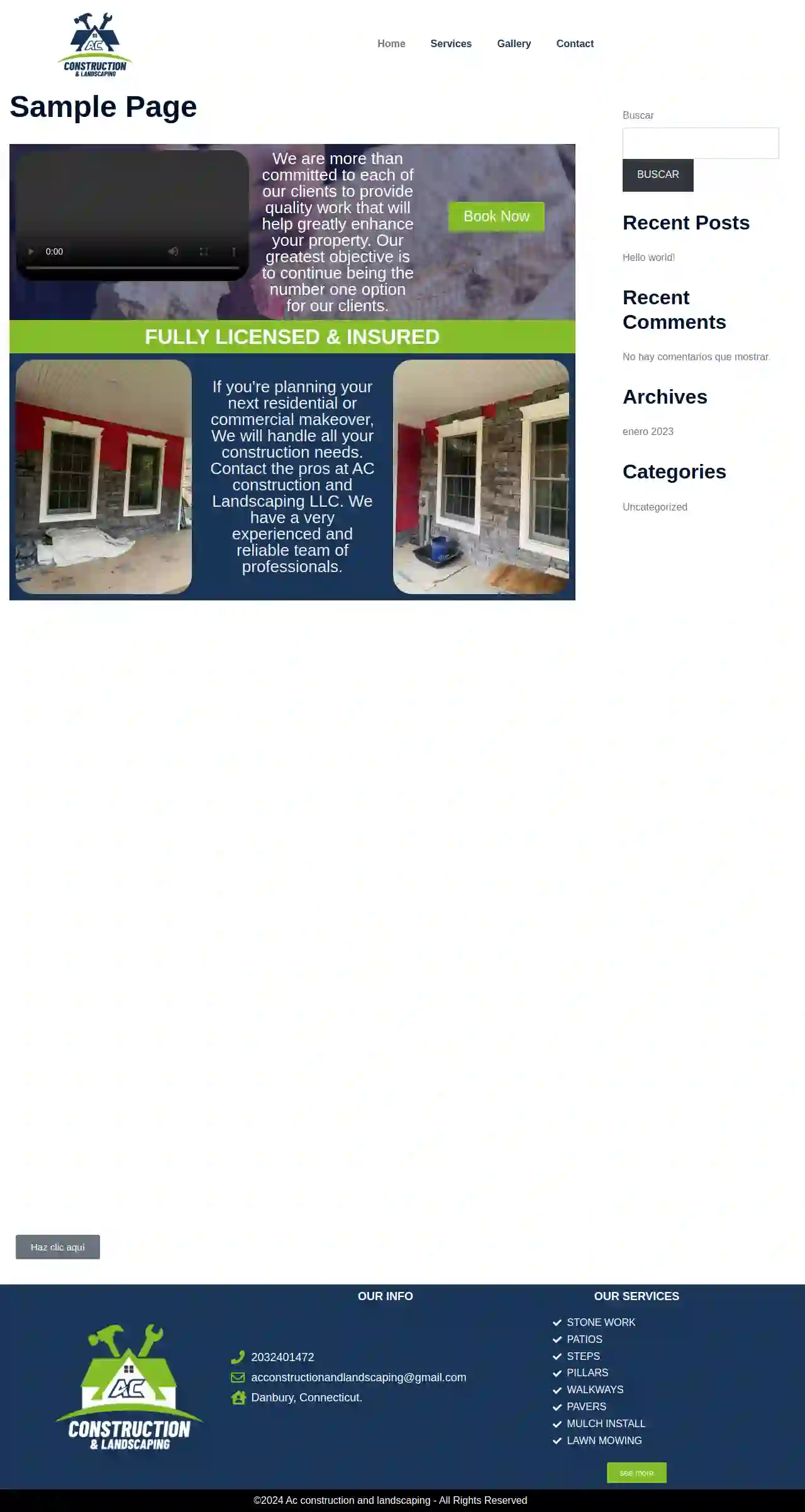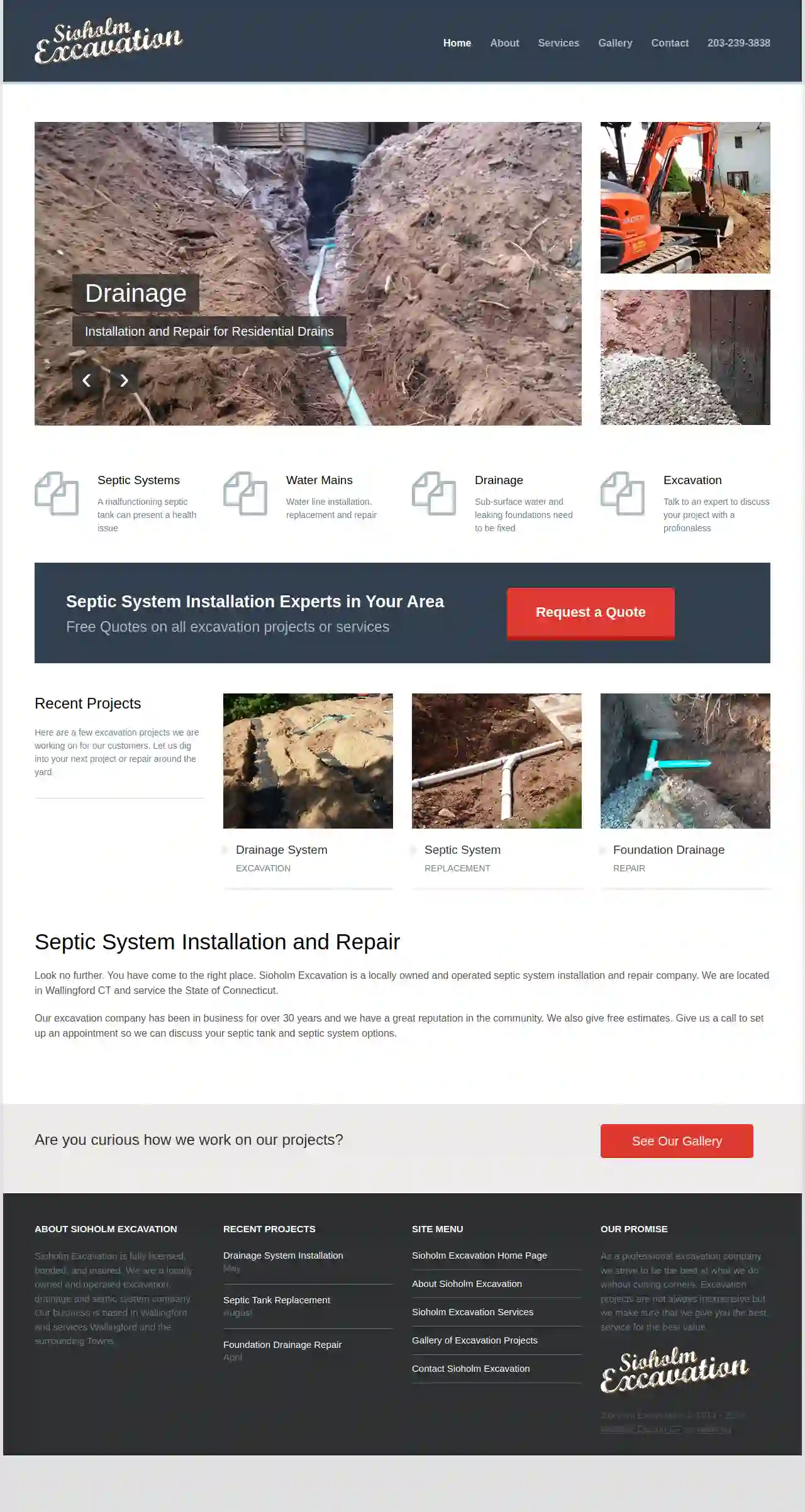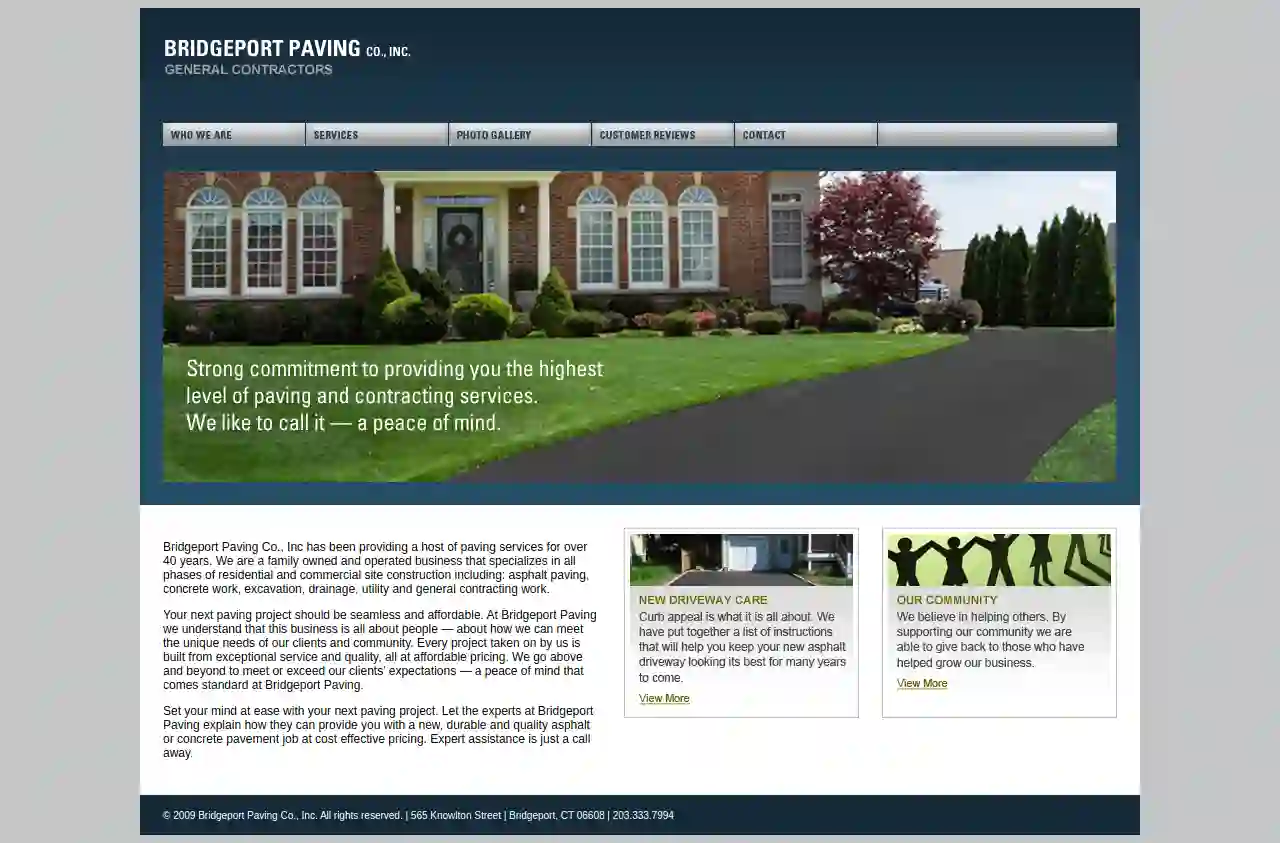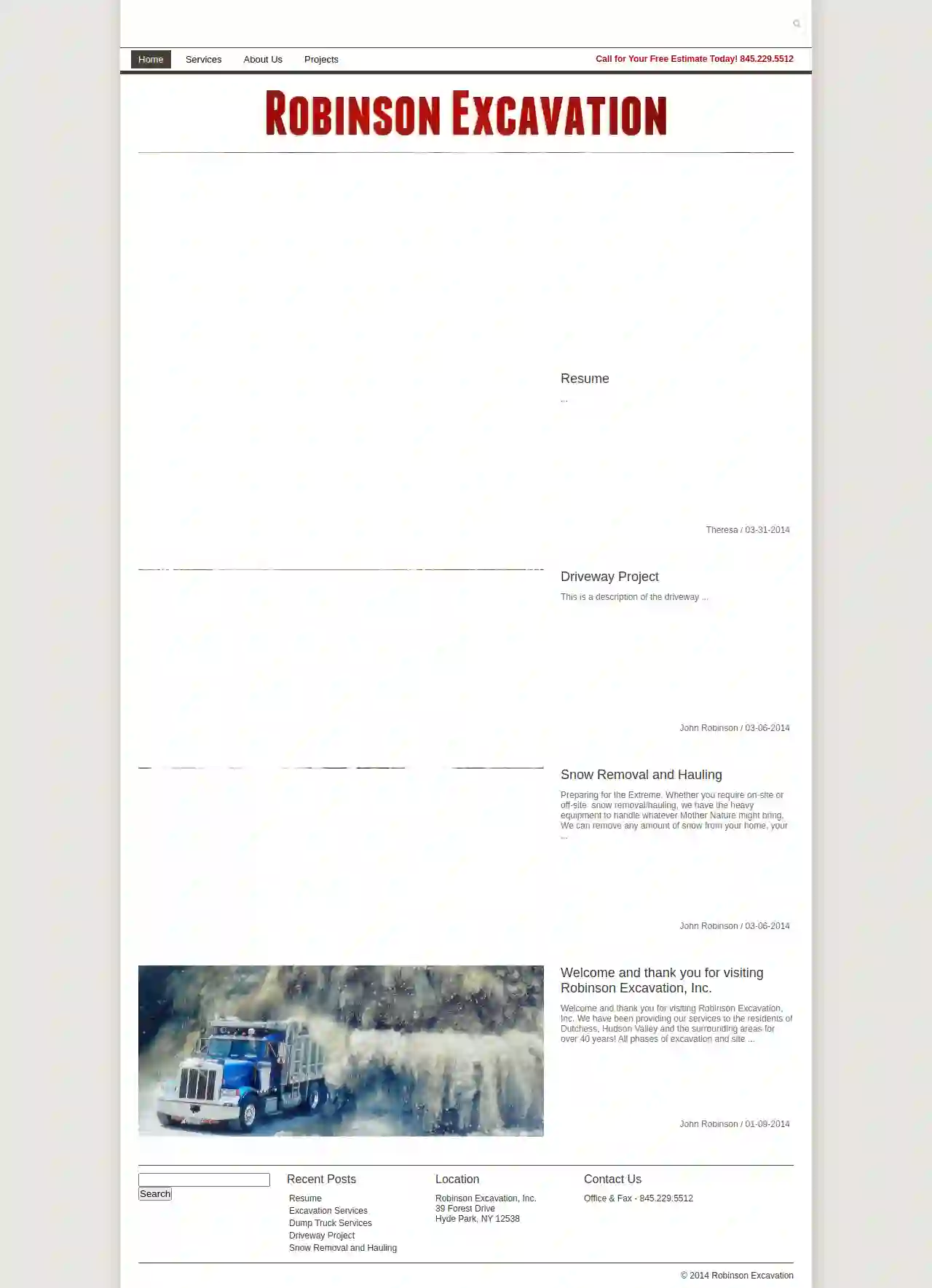Demolition Contractors Richmond
Find top Demolition Contractors in Richmond
Receive up to 3 Building Demolition quotes for your project today! Compare profiles, reviews, accreditations, portfolio, etc... and choose the best offer.

Mist Hill Construction and Outdoor Living
58 reviewsMain Office, Brookfield, CT, 06804, USAbout Mist Hill Mist Hill, established in 2015, is a leading force in the construction and outdoor living industry, renowned for its unwavering commitment to excellence and exceptional customer service. Operating throughout Connecticut, Mist Hill maintains its high standards by adhering to a simple principle: collaborating with the best to deliver the best. At Mist Hill, the cornerstone of every project is the strong partnership and open communication fostered between the company and its valued clients. Transparency is the key to Mist Hill's success. 2015 Year Established 2352 Projects Completed 7053 Contractors Appointed 756 Repeat Customers
- Services
- Why Us?
- Testimonials
- Gallery
Get Quote
Dirtworks Excavation LLC
51 reviews2221 SE 53rd Avenue, Hillsboro, 97123, USWho We Are Welcome to Dirtworks Excavation LLC, your go-to excavation company serving the Pacific Northwest region. We provide top-notch excavation services throughout NW Oregon and SW Washington, catering to projects of all sizes and complexities. Whether you need excavation for residential, commercial, or industrial purposes, we have got you covered. At Dirtworks Excavation LLC, we understand the importance of timely and efficient services. That’s why we are committed to delivering exceptional services that cater to your specific needs and schedule. We work closely with our clients, ensuring that they are updated on every step of the project and that we meet their expectations. We take pride in our highly skilled team of excavation professionals who are equipped with the latest technology and equipment to handle any project. Our team is dedicated to providing you with superior services that meet and exceed your expectations. We know that every project is unique, and that’s why we offer personalized services to ensure that our clients get exactly what they need. Contact us today to discuss your project and receive a free estimate. Our team is ready to help you with your excavation needs, and we guarantee that you won’t be disappointed.
- Services
- Why Us?
- Gallery
Get Quote
Excavation Contractors CT
3.73 reviews94 Sand Pit Rd, Danbury, 06810, USAbout Our Excavation Contractors in CT Excavation Contractors CT is the leading septic and excavation company servicing New Haven and Fairfield Counties. Our excavating contractors have been bringing expert excavation services to the Danbury and nearby areas for over 40 years, and understand what it takes to bring you the quality service you deserve. Whether for foundations, septic, swimming pools or otherwise, you can depend on our experienced team of excavation professionals to deliver results to exceed your expectations. Now you'll never have to ask the question, "Where's the best excavation companies near me?" again. The answer is Excavation Contractors CT. Why We're The #1 Team of Excavation Contractors in CT It may seem to some that excavating companies are all about moving dirt, and in some effects, it’s true. Yet, there is much more that goes into the services we bring to Danbury and the surrounding areas. From bringing professional septic excavation, to drainage trenches, site preparation and a whole list of other services, you can be sure that making the choice to bring in Excavation Contractors CT is making a step in the right direction. Professional and Affordable Excavation Services We are resident professionals when it comes to moving dirt, yet also provide you with the means to care for removed topsoil if required, and to bring a backfilling service you can count on throughout your project. Excavation Contractors CT brings the services needed to prepare homes for building, with the right foundation digging services and site preparation at hand, you have the capability to begin your work on a solidly laid foundation with our assistance. With the right digging and grading in place, your foundation experts can quickly make their way into position, bringing speed and efficiency to the overall build. This is where the talents and capabilities of our company truly shines, in bringing the essential services in order for follow up professionals to have a simple time with their work. It’s through these conjoined efforts that the task you have at hand is completed with speed, yet to high levels of accuracy. Expert Excavating Contractors in CT with Equipment to Match We provide Danbury and the surrounding area with a wide range of services in order to give you the means to work underground with ease. Our experts have been bringing their brand of specialized services to the area for over 40 years, and we are confident that we can provide you with the best possible service. We are committed to providing our clients with the highest quality excavation services at competitive prices. We are also committed to safety and environmental responsibility. We use the latest equipment and techniques to ensure that our work is done safely and efficiently. We are also committed to protecting the environment and minimizing our impact on the surrounding area.
- Services
- Why Us?
- Testimonials
- Gallery
Get Quote
Fleury Excavation LLC
4.916 reviewsWaterbury, USWelcome to Fleury Excavation At Fleury Excavation LLC, we specialize in providing top-quality excavation services. From residential to commercial projects, our team has the expertise and equipment to handle any excavation job. We pride ourselves on our attention to detail and commitment to customer satisfaction. Contact us today to learn more about our services. Fully licensed and Certified Our team of professionals is 100% licensed and certified ready to tackle every and any project.
- Services
- Why Us?
Get Quote
AC Construction & Landscaping
41 reviewsDanbury, USAC Construction and Landscaping LLC We are more than committed to each of our clients to provide quality work that will help greatly enhance your property. Our greatest objective is to continue being the number one option for our clients. If you're planning your next residential or commercial makeover, We will handle all your construction needs. Contact the pros at AC construction and Landscaping LLC. We have a very experienced and reliable team of professionals. When it comes to landscaping services, we are the best option for you! We offer a full range of tree and landscaping services in CT and NY, we specialize in landscape design, installation, maintenance services, tree removal, landscape planting, transplanting, and a variety of construction services. We can turn your front and backyard into a beautiful haven that you can be proud of. Our qualified and experienced crews are friendly and informative, making it seamless to plan your project with our landscape contractors. Why Choose Us? Our company takes care of every single detail of the construction process. Planning, designing, constructing, and furnishing a new facility or renovation. We take pride in ourselves and this is shown through the way we treat our customers and by providing a quality service.
- Services
- Why Us?
- Gallery
Get Quote
Sioholm Excavation
48 reviews42 New Place Street, Wallingford, 06492, USAbout Sioholm Excavation Sioholm Excavation is a locally owned and operated excavation, drainage and septic system company. We are fully licensed, bonded, and insured. Our business is based in Wallingford and services Wallingford and the surrounding Towns. Our Promise As a professional excavation company we strive to be the best at what we do without cutting corners. Excavation projects are not always inexpensive but we make sure that we give you the best service for the best value. Experience With over 3 Decades of Excavation Experience, let Sioholm Excavation help you with your installation or repairs for your home or business. Throughout the years, Sioholm Excavation has helped hundreds of customers fix their septic systems, sewer, water main, drainage and other issues as quickly as possible for a fair price. We take pride helping customers as quickly and efficiently as possible. Services Sioholm Excavation Services offers high quality installations and repairs on all types of excavation and site projects. With professional service, Sioholm Excavation is a company with years of experience who takes pride in each and every job while providing exceptional customer service. Being able to provide residential and commercial excavation services throughout Connecticut, Sioholm Excavation can work with your contractors for new construction or help you with your repairs. From septic systems to all types of property drainage, we are the number one choice for your excavation services and we will provide FREE estimates to help you figure out what your project will cost. We also can help recommend excavation solutions for certain types of problems so you can insure a complete job that works. Sioholm Excavation is committed to helping homeowners and businesses with all of their excavations needs. Professional service and quality workmanship, Sioholm Excavation is ready for your next project. Teamwork Our company is experienced in collaboratively working with all parties involved in a given project, including the homeowner, developer, general contractor, site and professional engineers, and other subcontractors. Testimonials SIoholm Excavation was there to help us get our septic system replaced right away. There is nothing worse than having no control over your water and septic system, and Bill Sioholm was there to help us get back on track. Wallingford Resident Values We pride ourselves on our honest and dependable services giving you trusted, high quality workmanship and the personal attention you deserve. Professional Dependable Courteous Experienced Knowledgeable
- Services
- Why Us?
- Testimonials
- Gallery
Get Quote
D & T Excavation Inc
413 reviewsPO Box 3767, Wilsonville, 97070, USD&T Excavation, Inc. is a family-owned and operated earthwork contractor. We are passionate about helping you build tomorrow from the ground up. We perform as promised in a professional, efficient, safe, and detailed manner. D&T’s team of diversely experienced personnel will take care of all your earthwork needs. Our employees have a passion for what they do and it shows in their work. Our clients encompass commercial, residential, and governmental agencies. Since 2003, we have been cultivating strong relationships with our material and safety suppliers, equipment dealers, inspectors and geotechnical engineering partners. This gives us the ability to quickly adapt to changing site conditions that often arise in civil construction to keep your project on track and on budget. D&T continues to invest in the ever-changing field of technology to remain a leader in efficiency. GPS, drone quantity-management and the latest tools and machinery are just a few of the high-tech items we employ. Training is just as important as the equipment. D&T employees receive ongoing training to keep our skills sharp, our work efficient and our job sites safe! Our mission is to provide quality, professional service to our clients through safe and efficient work practices. Our work ethic, skills and attention to detail often have our clients returning for their next project.
- Services
- Why Us?
- Gallery
Get Quote
Bridgeport Paving Co Inc
3.52 reviews565 Knowlton Street, Bridgeport, 06608, USBridgeport Paving Co., Inc. has been providing a host of quality paving services for over 40 years. We are a family owned and operated business that specializes in all phases of residential and commercial site construction including: asphalt paving, concrete work, excavation, drainage, utility and general contracting work. Your next paving project should be seamless and affordable. At Bridgeport Paving we understand that this business is all about people — about how we can meet the unique needs of our clients and community. Every project taken on by us is built from exceptional service and quality, all at affordable pricing. We go above and beyond to meet or exceed our clients' expectations — a peace of mind that comes standard at Bridgeport Paving. Set your mind at ease with your next paving project. Let the experts at Bridgeport Paving explain how they can provide you with a new, durable and quality asphalt or concrete pavement job at cost effective pricing. Expert assistance is just a call away.
- Services
- Why Us?
- Testimonials
- Gallery
Get Quote
Deloury Construction Co Inc
4.25 reviews100 Burtt Road, Suite G01, Andover, 01810, USTrusted General Contractor and Excavator in Boston, MA The next time you need help with construction, excavation, or demolition services, count on Deloury Industries. Since 1963, our company has been accomplishing the most demanding construction challenges in the state and across our nation, ensuring our commercial and industrial customers meet the ever-changing demands of the marketplace. Why Choose Us? Our company is founded on the values of honest work, community engagement, and continuous improvement. With these values, strong leadership, and the dedication of our highly skilled employees, we've built on our history of success decade after decade. Moreover, we always aim to exceed your expectations in every project facet and bring life to your developments efficiently, safely, and within budget. Hire Us for Your Next Project Let our team make your project the next challenge we overcome. Our reliable, affordable, and trusted company is always ready to handle any of your construction projects. For inquiries about services, contact us and speak with our general contractor. We hope to be of service to you soon! Be Part of Our Team Jumpstart your career with us, and be part of a company that values its workers. Deloury Industries is now hiring truck drivers. To learn more about our career opportunities, get in touch with us.
- Services
- Why Us?
- Gallery
Get Quote
Robinson Excavation, Inc.
51 reviews39 Forest Drive, Hyde Park, 12538, USRobinson Excavation, Inc. - Your Trusted Excavation Partner in Dutchess County and Beyond For over 40 years, Robinson Excavation, Inc. has been a trusted name in Dutchess County, Hudson Valley, and surrounding areas. We are a family-owned and operated business dedicated to providing high-quality excavation and site work services for both residential and commercial clients. Our commitment to excellence, combined with our extensive experience, ensures that every project is completed to the highest standards. We understand that excavation projects can be complex and require a skilled and experienced team. That's why we have assembled a team of dedicated professionals who are passionate about delivering exceptional results. From initial planning to final completion, we work closely with our clients to ensure their vision is realized. We are fully insured and equipped to handle all phases of excavation and site work, no matter how big or small the project. Our services include: - Fix muddy driveways - Fix and replace failing septic systems - Place new septic systems - Municipal water and sewer lines (Town or City) - Footing drains - Dry wells - New foundations - Demolition - Blasting - Trucking - Paving - Delivery of shale, Item 4, all size stone, fill, and topsoil - Complete dump truck service - And much more… We are committed to providing our clients with the highest level of service and satisfaction. We believe in open communication, transparency, and working closely with our clients to ensure their needs are met. Contact us today for a free quote and let us help you bring your project to life.
- Services
- Why Us?
- Gallery
Get Quote
Over 22,076+ Excavation Businesses on our directory
Our excavation contractors operate in Richmond and surrounding areas!
ExcavationHQ has curated and vetted Top Excavation Businesses near Richmond. Find a reliable pro today.
Frequently Asked Questions About Demolition Contractors
- Waste Generation: Demolition generates a large volume of debris, contributing to landfill space and potentially releasing harmful substances into the environment if not disposed of properly.
- Air Pollution: Dust and particulate matter released during demolition can impact air quality, affecting human health and the environment.
- Noise Pollution: Demolition activities can generate significant noise, disturbing nearby residents and wildlife.
- Resource Depletion: Demolition consumes resources that could be salvaged and reused, contributing to resource depletion and environmental degradation.
- Clear the Site: Remove all furniture, appliances, personal belongings, and any valuable items from the structure.
- Secure the Perimeter: Fence off the demolition area to prevent unauthorized access and protect surrounding property.
- Disconnect Utilities: Arrange for the disconnection of electricity, gas, water, and other utilities servicing the building.
- Hazardous Material Abatement: If asbestos, lead paint, or other hazardous materials are present, have them professionally removed before demolition begins.
- Notify Neighbors: Inform your neighbors about the demolition schedule to minimize disruptions and address any concerns.
- Obtain Permits: Ensure all necessary demolition permits are in place before starting work.
What are the environmental impacts of demolition?
What is a demolition bond?
What is the difference between demolition and deconstruction?
Demolition: Typically involves bringing down a structure quickly and efficiently, often using heavy machinery and potentially explosives. The primary goal is to clear the site.
Deconstruction: Focuses on carefully dismantling a building piece by piece to salvage reusable materials. It prioritizes minimizing waste and environmental impact, often involving manual labor and specialized tools.
The choice between demolition and deconstruction depends on the project's objectives, budget, and environmental considerations.
How do I prepare my property for demolition?
What are the environmental impacts of demolition?
- Waste Generation: Demolition generates a large volume of debris, contributing to landfill space and potentially releasing harmful substances into the environment if not disposed of properly.
- Air Pollution: Dust and particulate matter released during demolition can impact air quality, affecting human health and the environment.
- Noise Pollution: Demolition activities can generate significant noise, disturbing nearby residents and wildlife.
- Resource Depletion: Demolition consumes resources that could be salvaged and reused, contributing to resource depletion and environmental degradation.
What is a demolition bond?
What is the difference between demolition and deconstruction?
Demolition: Typically involves bringing down a structure quickly and efficiently, often using heavy machinery and potentially explosives. The primary goal is to clear the site.
Deconstruction: Focuses on carefully dismantling a building piece by piece to salvage reusable materials. It prioritizes minimizing waste and environmental impact, often involving manual labor and specialized tools.
The choice between demolition and deconstruction depends on the project's objectives, budget, and environmental considerations.
How do I prepare my property for demolition?
- Clear the Site: Remove all furniture, appliances, personal belongings, and any valuable items from the structure.
- Secure the Perimeter: Fence off the demolition area to prevent unauthorized access and protect surrounding property.
- Disconnect Utilities: Arrange for the disconnection of electricity, gas, water, and other utilities servicing the building.
- Hazardous Material Abatement: If asbestos, lead paint, or other hazardous materials are present, have them professionally removed before demolition begins.
- Notify Neighbors: Inform your neighbors about the demolition schedule to minimize disruptions and address any concerns.
- Obtain Permits: Ensure all necessary demolition permits are in place before starting work.